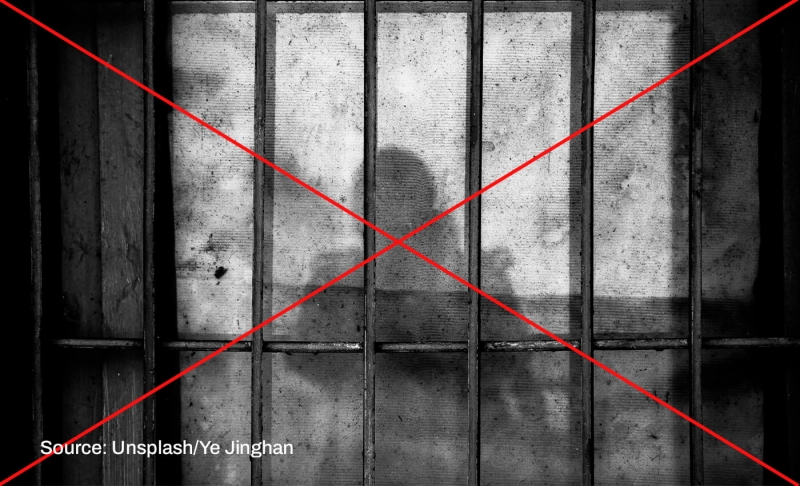By: Christian Haag
September 13 2022

There are no plans to build prisons for specific groups of people in Sweden, nor can Muslims be jailed without probable cause.
Context
In a recent video from a party meeting for the Swedish political party Nyans (Nuance) in Rinkeby, Sweden, party member Bashir Aman Ali made controversial claims about Swedish prisons and imprisonment. Aman Ali begins by addressing anxiety and uneasiness in Swedish society due to crime in areas classified as socially deprived areas, referred to by some as "problem areas" or "ghetto areas." He says that the Swedish government has a solution that entails building additional prisons to house 5000 inhabitants from these areas. Aman Ali goes on to tell the crowd that any Muslim can be arrested and imprisoned without probable cause under the pretense of being a "threat to national security." When questioned by Swedish State television regarding his claim about the imprisonment of Muslims, Aman Ali referred to the imprisonment of Abo Raad, who worked as an Imam in Gävle and was considered a figurehead in Swedish Salafi and Salafi-jihadi milieus in Sweden. In the spring of 2019, Raad was arrested under the Lagen om särskild Utlänningskontroll (LSU) act (Act of Special Control of Foreigners). He was classified as a threat to Swedish security and condemned to deportation, but the verdict could not be carried out due to the risk of torture. In May 2022, he left Sweden voluntarily.
In fact
Kriminalvården (the Swedish prison and probation service) is responsible for constructing prisons in Sweden and is currently in an expansive phase due to high occupancy in Swedish prisons. There are currently 2270 remand prison places, 4690 prison places, and 600 temporary prison places. Remand prison places are for individuals waiting for trial or a prison place. By 2030, the goal is to have 3120 remand and 6980 prison places, and a decrease in the number of temporary prison places due to their negative consequences to the Swedish prison system. Temporary prison places are often shared spaces with a higher risk of violence and fewer opportunities for inmates to either work or study. Kriminalvården thus aims to increase the number of prison places in Sweden by around 3400, not 5000, and none of these are to be designated for one particular group of people.
Freedom of religion is written in the Instrument of Government, Chapter Two, Part One – the first part of the basic laws of Sweden, which make up the country's constitutional law. As such, arresting a person based on religious affiliation or creed is illegal. The main objective of the Act of Special Control of Foreigners (LSU), updated in 2022, is to combat terrorism or any other serious threat to Swedish security.
The verdict
The claims made by Bashir Aman Ali are refuted by Swedish constitutional laws and the 2021-2030 Kriminalvården plans for expansion. Gang-related crime in immigrant-heavy suburbs has left Swedish prisons at full capacity, but this does not support the claim that Sweden plans to build a 5000-capacity prison intended for specific social groups. Prisons are built for criminals, regardless of heritage or creed. While there are issues with intolerance towards Muslims, any arrest on the grounds of religion violates constitutional laws in Sweden. Therefore, we have marked this claim as false.